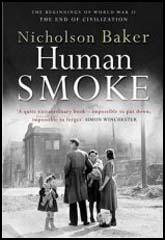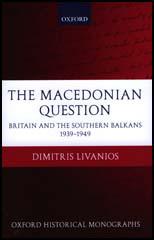Spartacus Review
Volume 18: 12th May, 2008
Second World War

Title: Dunkirk: he Men They Left Behind
Author: Sean Longden
Editor:
Publisher: Constable & Robinson
Price: £20.00
Bookshop: Amazon
Spartacus Website: Dunkirk
Category:
At 2 am on the morning of the 3rd of June 1940, General Harold Alexander searched along the quayside, holding onto his megaphone and called "Is anyone there? Is anyone there?" before turning his boat back towards England. Tradition tells us that the dramatic events of the evacuation of Dunkirk, in which 300,000 BEF servicemen escaped the Nazis, was a victory gained from the jaws of defeat. For the first time, rather than telling the tale of the 300,000 who escaped, Sean Longden reveals the story of the 40,000 men sacrificed in the rearguard battles. On the beaches and sand dunes, besides the roads and amidst the ruins lay the corpses of hundreds who had not reached the boats. Elsewhere, hospitals full of the sick and wounded who had been left behind to receive treatment from the enemy's doctors. And further afield - still fighting hard alongside their French allies - was the entire 51st Highland Division, whose war had not finished as the last boats slipped away. Also scattered across the countryside were hundreds of lost and lonely soldiers. These 'evaders' had also missed the boats and were now desperately trying to make their own way home, either by walking across France or rowing across the channel. The majority, however, were now prisoners of war who were forced to walk on the death marches all the way to the camps in Germany and Poland, where they were forgotten until 1945.

Title: Nicholson Baker
Author: Human Smoke
Editor:
Publisher: Simon & Schuster
Price: £20.00
Bookshop: Amazon
Spartacus Website: The Second World War
Category:
At a time when the West seems ever more eager to call on military aggression as a means of securing international peace, Nicholson Baker's provocative narrative exploring the political misjudgements and personal biases that gave birth to the terrifying consequences of the Second World War could not be more pertinent. With original and controversial insights brought about by meticulous research, Human Smoke re-evaluates the political turning points that led up to war and in so doing challenges some of the treasured myths we hold about how war came about and how atrocities like the Holocaust were able to happen. Baker reminds us, for instance, not to forget that it was thanks in great part to Churchill and England that Mussolini ascended to power so quickly, and that, before leading the United States against Nazi Germany, a young FDR spent much of his time lobbying for a restriction in the number of Jews admitted to Harvard.Conversely, Human Smoke also reminds us of those who had the foresight to anticipate the coming bloodshed and the courage to oppose the tide of history, as Gandhi demonstrated when he made his symbolic walk to the ocean - for which he was immediately imprisoned by the British.

Title: The Macedonian Question
Author: Dimitris Livanios
Editor:
Publisher: Oxford University Press
Price: £55.00
Bookshop: Amazon
Spartacus Website: Josip Tito
Category:
The Macedonian Question - the struggle for control over a territory with historically ill-defined borders and conflicting national identities - is one of the most intractable problems in modern Balkan history. In this lucid and persuasive study, Dimitris Livanios explores the British dimension to the Macedonian Question from the outbreak of the Second World War to the aftermath of the Tito-Stalin split. Investigating British policy towards the Bulgar-Yugoslav controversy over Macedonia, the author assesses the impact of British actions and strategy during this period, with a particular focus on wartime planning concerning the future of Yugoslavia and Bulgaria, and attempts to prevent Tito from creating a federation of the South Slavs, both during and after the war. Making extensive use of British archives, Livanios brings to light important documentary evidence to offer a fresh perspective on the emergence of the federal Macedonian unit within Tito's Yugoslavia, and on the efforts to create a functioning Macedonian national ideology.
